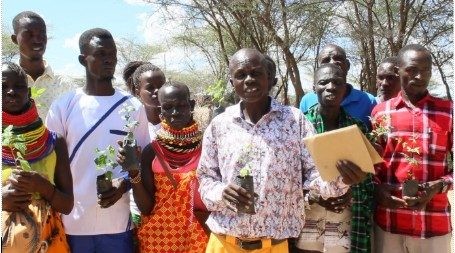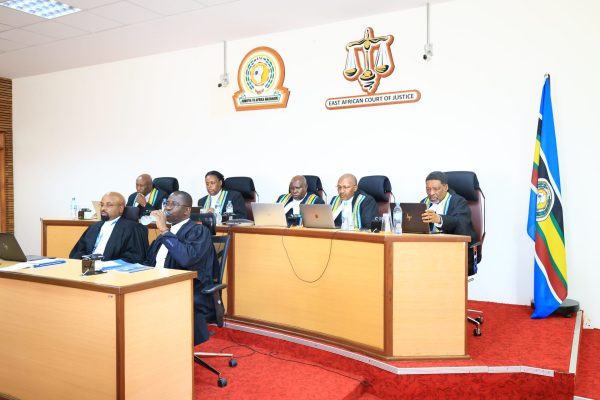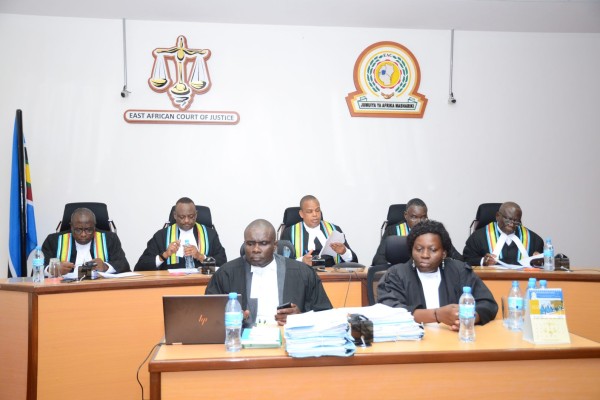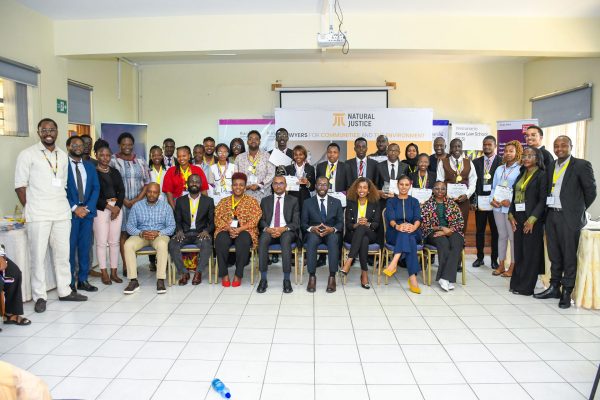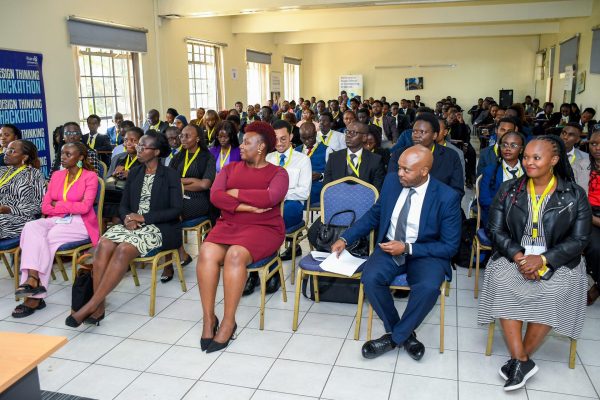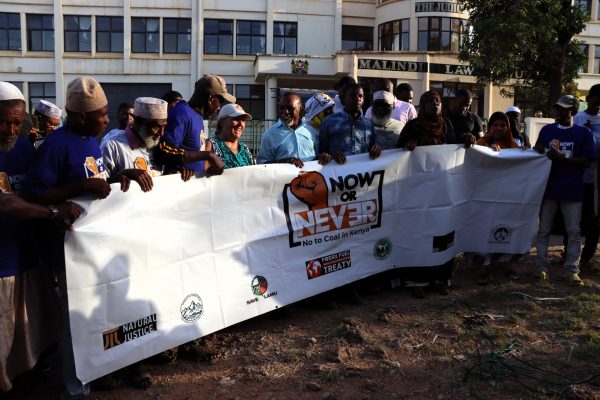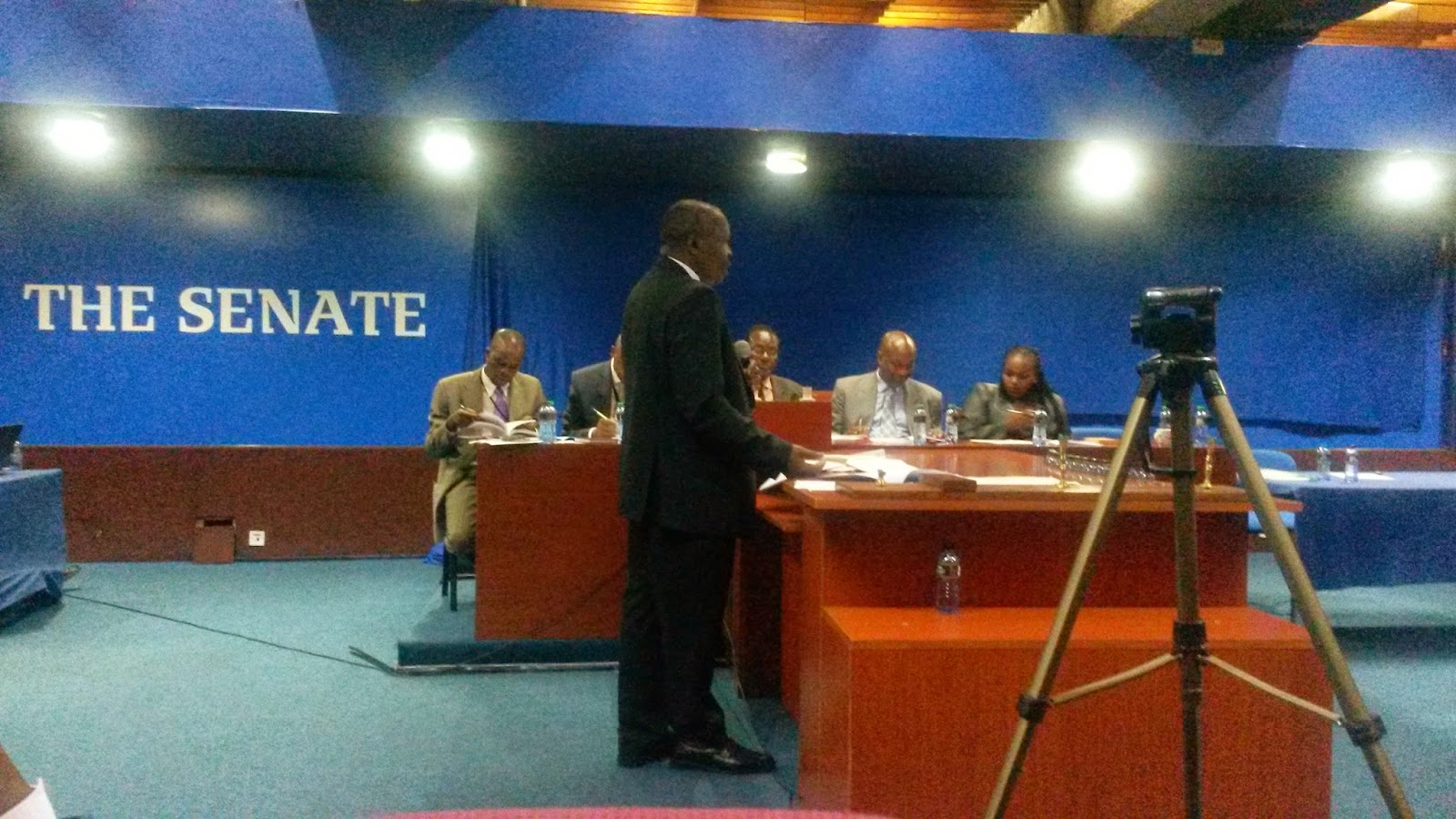 |
|
Mr. Odenda Lumumba, from the Kenya Land Alliance
and the Civil Society Working Group on the Community
Land Bill, presents his submissions
on the Bill before the Senate Committee.
|
Natural Justice’s office in Kenya recently brainstormed on the question of public participation, asking what it entails, its substantive elements, and how to ensure it is effective. The starting point in the law lies in the Constitution of Kenya, which requires Parliament to facilitate public participation and involvement in the legislation process.
Putting this principle to the test, Natural Justice attended a public hearing on the Community Land Bill held at the Kenyatta International Conference Centre, Nairobi, on last week. This hearing sought to give members of the public an opportunity to propose any amendments or changes to this fundamental Bill. The Senate Committee on the Community Land Bill conducted the hearing and was comprised of five Senators: Christopher Obure (Kisii); George Khaniri (Vihiga); Boy Juma Boy (Kwale); Martha Wangari (Nominated) and Liza Chelule (Nominated).
Natural Justice has been part of a civil society Working Group with partners such as the Kenya Land Alliance, RECONCILE, Ujamaa Kenya, and ACT! Kenya, who have been preparing a strategy on advocating for the implementation of a law on community land. Unfortunately, no representatives from the communities whose land will be affected by the enactment of this Bill were present due to the short notice given on the hearing.
Some of the most contentious issues raised by participants were:
- Part II of the Bill under Recognition, Protection & Registration of Community Rights, provides for compulsory acquisition of community land in the interest of public order, public morality, public health or land use planning pursuant to the Constitution. These terms are vague and need to be clearly defined.
- The Bill also establishes of a Community Land Management Committee composed of a few members of the community to facilitate land registration and oversee land management and development. These Committees are vested with broad authority and control over community land and do not foster wide community involvement in land management and decision-making. Instead, they endow increasing powers to a select few. The creation of a much more representative Community Assembly would better serve community interests as it will ensure separation of powers, accountability and improve meaningful community participation.
- Part V deals with land conversion, a process requiring the county government’s involvement. However, consultation procedures for consent are missing, thus barring the community from participating and making decisions about their land. It is highly recommended that any conversion of community land to either public or private land shall require two-thirds of the democratic vote by members of the Community Assembly. In the event of compulsory acquisition, the term “just and prompt compensation” must be clearly defined along with a specific time frame.
Natural Justice will be following the Bill’s movement through Parliament very closely. We hope that the Senate Committee will make the necessary changes to the Bill to ensure a fair and just Community Land Bill taking into account the full interests and rights of Kenya’s communities as envisioned in our Constitution.

